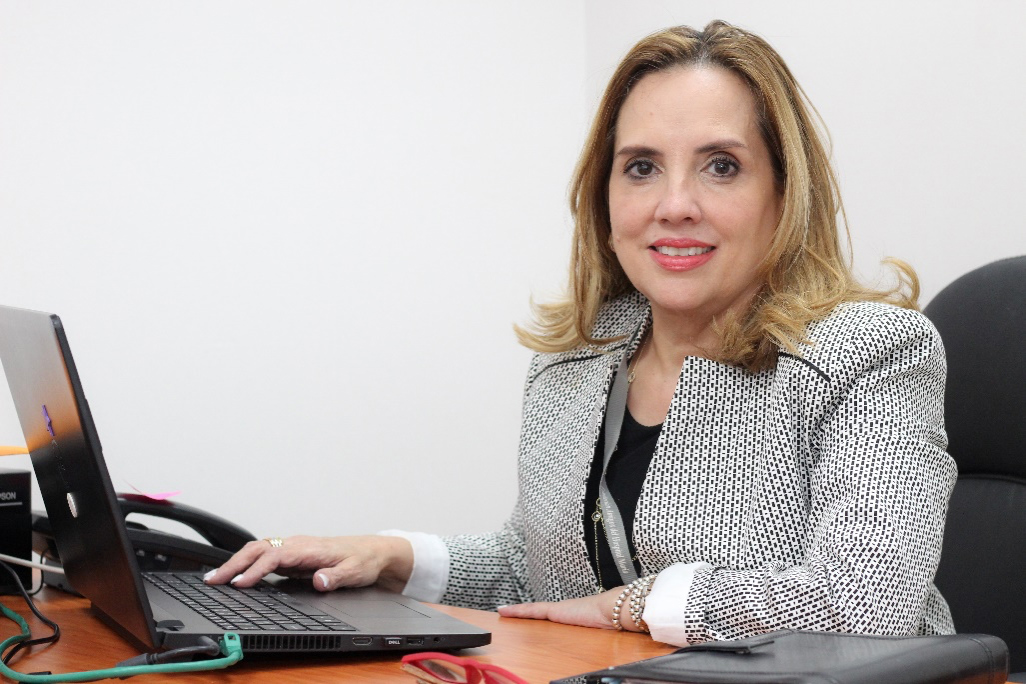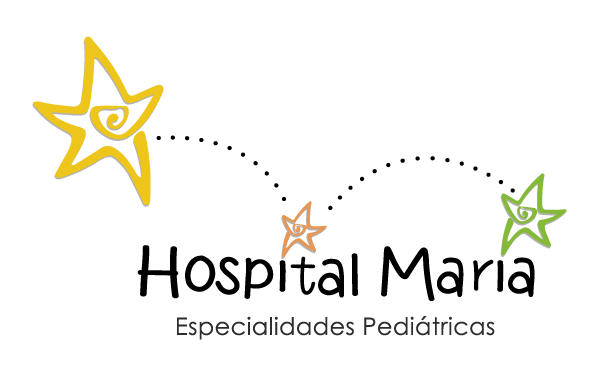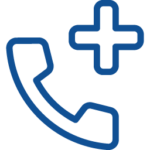


María Hospital, Pediatric Specialties, was created with the exclusive purpose of providing high-quality and warm care to children under 18 years of age. We highlight our passion and commitment to children, giving them hope to improve their health.
At María Hospital, Pediatric Specialties, our multidisciplinary team of professionals, including specialist physicians, nurses, administrative and support staff, is dedicated with passion and energy to providing quality, patient-centered medical care.
Our identity is reflected in our logo, which features three stars with a heart in the center. The stars symbolize our children, who radiate joy and vitality. The heart in the middle of the stars represents that they are the central core of the hospital and are in the hearts of all of us. This unites us in our passion to provide them with the best care and quality they deserve.
María Hospital, Pediatric Specialties was created with a central focus on the care of children. The yellow and orange colors represent the hospital building, while the green symbolizes the hope that this center provides to children who are looking for solutions to health problems that have not been resolved until now. It is a true blessing for us to be able to offer our services for the well-being and health of Honduran children.
Dra. Karla Fernández
Director of Clinical Management
Specialties
It is focused on the detection and treatment of congenital heart diseases, that is, heart diseases that manifest themselves when children are born, in addition to those acquired. We have modern equipment to perform studies such as echocardiograms, transesophageal echocardiograms, electrocardiograms, among others.
It allows the anatomical and functional study of the heart through invasive techniques (through puncture of arteries and veins). Our hemodynamics room is equipped with cutting-edge technology for performing minimally invasive and highly complex procedures, both diagnostic and therapeutic.
Its fundamental goal is the diagnosis and corrective or palliative surgical treatment of congenital and acquired heart diseases in children. In our “Heart Unit” the medical team jointly studies highly complex clinical cases to determine the best therapeutic option for the patient.
In this service, comprehensive management is carried out before, during and after surgery. We have fully equipped operating rooms in which surgical procedures of varying complexity are carried out.
The priority of this service is the reconstruction of areas of the body that have been damaged, as well as the correction of birth defects. Therefore, we provide treatment options for a wide variety of conditions such as; cleft lip repair, amputated ear replacement, wound debridement, among others.
Studies the diagnosis and treatment of diseases that affect the skin, hair and nails in boys and girls. Hay enfermedades dermatológicas características y exclusivas de la infancia, es por ello que nos especializamos en el manejo de estas patologías como ser vitíligo, dermatitis atópica y psoriasis entre otras.
It deals with the evaluation, study, diagnosis and treatment of diseases related to the endocrine system, that is, hormonal and metabolic disorders. Nuestro servicio se basa en la educación para un cambio en el estilo de vida, como pilar para el manejo integral de las patologías. We offer programs to treat specific diseases, such as diabetes and thyroid cancer.
Service responsible for providing care in the diagnosis and treatment of diseases of the digestive system, liver and pancreas. We have high-tech equipment to perform endoscopies, colonoscopies, ligation of esophageal varices and gastrostomies, among other procedures.
Su trabajo se basa en la prevención, estudio y tratamiento de diversos tipos de enfermedades alérgicas e inmunodeficiencias. Within our service, a series of studies are carried out for individualized management according to the pathology, such as immunotherapies in patients with allergies, skin tests, oral provocation tests, and others.
This service is responsible for caring for diseases of the kidneys and urinary tract. We have peritoneal dialysis and hemodialysis units; We also have a successful kidney transplant program as a treatment for chronic kidney disease.
It is responsible for the diagnosis and treatment of diseases that affect the brain and nervous system. This service offers comprehensive management of diseases such as epilepsy, headaches, attention deficit disorders, autism, among others.
Otorhinolaryngology is a medical specialty that focuses on the diagnosis and treatment of diseases and disorders that affect the ear, nose, throat, as well as related structures of the head and neck.
Support Specialties
These specialists are responsible for administering anesthesia (drugs to numb or relieve pain) to pediatric patients (children and adolescents) during surgical and other invasive and non-invasive procedures. Pediatric anesthesiologists also monitor the patient’s well-being during and after the procedure, and manage any anesthesia-related complications.
The pediatric intensive care specialty in a hospital is dedicated to providing specialized, highly supervised medical care to children with serious illnesses or critical conditions. Patients are closely monitored by a team of doctors, nurses and other healthcare professionals, and are provided with treatment and support to help them recover as soon as possible.
It focuses on the study of the distribution and determination of causes of diseases in children. Epidemiologists work to identify risk factors, evaluate prevention programs, and monitor disease outbreaks. They also collaborate with health professionals to develop strategies to improve the health of the child population.
Pediatric infectious disease focuses on the diagnosis and treatment of infections in children. Infectious diseases specialists work to identify the cause of an infection and determine the best treatment to combat it. They also collaborate with other healthcare professionals to develop infection prevention and control programs, and to ensure that patients receive appropriate care during the course of their illness.
Nuclear medicine focuses on the use of small amounts of radioactive substances or nuclear medicine images to diagnose and treat diseases in children. Techniques such as positron emission tomography (PET), carbon monoxide emission tomography (SPECT), and bone scans are used to obtain detailed images of the body and help in the diagnosis of diseases. They also use treatments such as radioisotope therapy to treat certain diseases.
Clinical Neurophysiology is defined as a medical specialty that, based on the knowledge of basic neurosciences, aims to functionally explore the Central and Peripheral Nervous System, using highly specialized technology for diagnostic, prognostic and therapeutic guidance purposes.
Exams that are carried out
- EEG: Digital electroencephalogram
- EMG: Needle Electromyography
- ECN ó VCN: Nerve conduction studies or motor and sensory nerve conduction velocity
- Delayed responses: F wave and H reflex
- Myasthenia, Jolly, repetitive nerve stimulation or supramaximal nerve stimulation tests
- Blink Reflex or blink reflex
It focuses on image acquisition to diagnose and treat diseases in children. Radiologists use techniques such as x-ray, computed tomography (CT), magnetic resonance imaging (MRI), and ultrasound to obtain detailed images of the body. These images are then interpreted to help diagnose diseases and plan treatment. Pediatric radiologists are specialized in taking images and performing procedures in children, taking into account the differences in relation to adults.
Supporting services
The pediatric stabilization unit is a specialized area within a pediatric hospital used to treat children with serious illnesses or injuries that require immediate medical attention. This unit is equipped with the personnel and equipment necessary to provide intensive care and stabilize the patient’s condition before being transferred to an intensive care unit or a specialized care unit.
The hospital pharmacy meets pharmaceutical needs through the selection, preparation, acquisition, control, dispensing, medication information and other activities aimed at achieving appropriate, safe and economical use of medicines and health products, for the benefit of patients. treated at the María Hospital, Pediatric Specialties.
It has highly trained personnel, with the purpose of serving our users with quality and warmth.
Office Hours
- External Consultation from Monday to Friday from 7:00 a.m. to 7:00 p.m.
- Hospital Units from Monday to Friday from 7:00 a.m. to 9:00 p.m.
Physical therapy is a medical discipline that focuses on the treatment of injuries and illnesses through the use of therapeutic exercises, massages, manipulations, and other non-invasive techniques. The main goal of physical therapy is to help people regain mobility, reduce pain, and improve quality of life.
Currently, the laboratory provides diagnostic support to inpatients and outpatients who require high-quality services. Ward sampling is offered to critically ill patients and operates 24 hours a day, seven days a week.
The Clinical laboratory service provides a wide range of tests with the purpose of contributing to a timely and reliable diagnosis for the preservation of health and the prevention of diseases, as part of the health team of our institution.
Nutrition Outpatient Consultation
The objective is to ensure that the patient and their family can be healthy people through adequate nutrition.
The nutrition clinic is the right place for the patient to learn to improve their quality of life through good nutrition, which is essential during the childhood stage, since it is the ideal time where we learn about the habits that They will form for a better future as people.
Nutrition workshops are provided for diseases such as type 1 diabetes, since through continuing education one can more effectively adhere to the nutritional treatment of the disease. In addition, they learn about different recipes and preparation methods that improve the flavor. without altering the nutritional quality of the food.
Hospital Nutrition
It is responsible for promoting, protecting and recovering the nutritional health of the patient by providing nutritional support in a complementary manner to medical treatment to all services such as the Pediatric Intensive Care Unit (PICU), Nephrology, Hospitalization, Hemodialysis and Peritoneal Dialysis and to patients who thus require it during their hospital stay. María Hospital, Especialidades Pediátricas also provides our hospitalized patients with: food, special formulas and clinical nutrition services.
Meals prepared and served meet nutritional requirements, based on your medical and cultural needs. This is done through prevention, assessment, diagnosis, establishment of nutritional support when necessary, and monitoring of patients with malnutrition or at risk of suffering from it.
Pediatric Dentistry is a specialty of dentistry that is dedicated to the oral health of children, from childhood to adolescence. This specialty focuses on the prevention, diagnosis and treatment of dental and oral diseases in children, including cavities, problems with the growth and development of teeth, and gum diseases.
Psychology Outpatient Consultation.
Its main objective is to provide a space for specialized care and intervention, responding to the psychotherapeutic needs of patients and families, in a comprehensive manner.
Provided:
- Individual, family and group therapy.
- Psychological evaluations.
- Facilitate decision making and effective psychological intervention.
- Interdisciplinary teamwork
- Psychotherapeutic intervention and follow-up of cases in different areas such as: hospitalization, PICU, Nephrology, Operating Room and others
- Support and creation of extension and educational research programs.
Psychoprophylaxis in the Pediatric Surgical Anesthetic Process
Its main objective is to prepare patients and parents to reduce anxiety levels during the anesthetic and surgical process, offering intervention at three different times: before, during and after anesthesia and surgery, being a multidisciplinary work. where you work together with the anesthesia, surgery, nursing and psychology team.
Honduras represents the 5th country that has sought to implement its use, with the HMEP being the pioneer in the country to successfully carry out this program, expanding and improving the original proposals.
It has professionals trained to carry out administrative technical tasks specific to their function and collaborate in carrying out examinations, procedures and treatments in the area of diagnostic imaging and/or radiotherapy. The staff highlights their vocation for service, with organizational and communication skills, solid ethical and value principles and the ability to work as a team.
Studies that are carried out
- Magnetic Resonance Studies
- Computed Tomography Studies
- Simple x-rays
- Radiografías simples
- Ultrasound Studies
Support functions are performed in the areas of the Pediatric Intensive Care Unit, Hospitalization, and Outpatient Consultation in the management of diseases that affect or are respiratory in nature. Such care includes the management and care of the airway, permeabilization or cleaning of the the same, management and care of ventilators and respiratory support equipment, respiratory exercises and respiratory rehabilitation for post-surgical patients who require it and in general constant support in the management of the airway to any patient who, due to their different pathologies, compromises their proper respiratory process.
In the Respiratory Therapy Clinic, education is provided to mothers about the management of inhalers, airway cleaning, respiratory therapy and those who are referred from the outpatient clinic, spirometry as a diagnostic complement and in the future support to the pulmonology clinic.
Our objective is to make use of the necessary tools to provide social assistance to patients and family members who attend the hospital for medical care as well as to carry out socioeconomic studies and determine their hospital social classification, at the same time detecting social problems that interfere with the patient’s treatment and seek the best solution for said problem either at the hospital level or in other institutions that ensure the well-being of children.
Most relevant activities carried out:
- Socioeconomic studies of patients for authorization procedures to initiate high-cost treatments.
- Extend application to patients who request shelter from the foundation.
- Extend proof of medical assistance to patients who request it.
- Extend referral of blood donors.
- Intervention in social cases.
Office Hours
Monday to Friday from 8:00 a.m. to 5:00 p.m.
The interhospital transportation service is a service that is responsible for transferring chronic patients or patients with serious illnesses from one hospital to another to receive specialized care or medical treatment.











